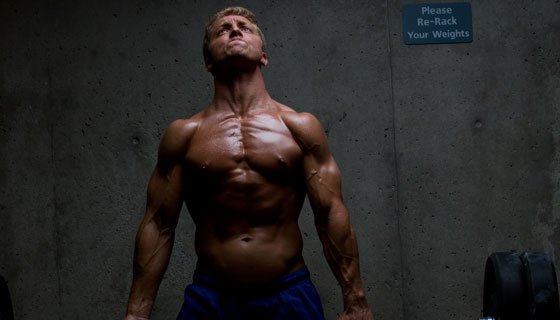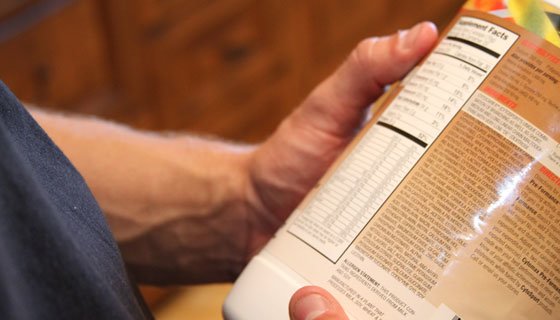I know a lot of you are wondering what do I need post workout? Am I getting enough or too much carbs? It can drive you crazy and make you feel overwhelmed and like giving up on the whole thing. This article enjoyed reading. It will answer a lot of your questions if not all of them. :)
How Many Carbs Post-Workout?
Look around. See all those people swilling cornstarch-based drinks, shoveling down bananas like a hungry gorilla, or otherwise gorging on carbohydrates?
Now look closer. Most of them aren't lean. Yet they're doing the same thing you've been told to do your entire lifting career: Consume carbohydrates post-workout.
While the idea of carbohydrate-laden post-workout nutrition is a sexy sell to athletes and physique enthusiasts alike, where does it come from, and what does it mean?
Post-exercise carbohydrate recommendations are rooted in the endurance community and in isolated situations where the subjects were doing slow eccentric contractions, the sort unlikely to be replicated in a typical training session1-7. Yet those findings have come to be accepted as dogma across the exercise universe, including among resistance trainees.
Pretty much everyone who works out shares three basic post-workout recovery goals:
- To begin the recovery process
- To support muscle growth
- To support our hormones and metabolism after a hard training session
Goal #1: Physique Enhancement
Let's face it: The majority of you just want to look good naked. As a result, your goals are to optimize fat burning and muscle building alike.What's the one thing that everyone can agree on when it comes to losing fat and building muscle? Our hormones need to help. We can't accomplish fat loss or lean-mass gain unless our hormones are giving our body its marching orders.
On the top of that list is the issue of insulin sensitivity; that is, the body's ability to preferentially store those carbs we're eating post workout in muscle tissue instead of as fat stores. Training heightens your insulin sensitivity. That simply means you'll need fewer carbs after your workout to do what you needed more carbs to do before your workout.
Which raises a question: Why are we cramming copious amounts of carbs down our gullet after the workout, when we need less to do more? Especially when the majority of our activity can be fueled by fat8? In truth, if we "top off" our carb stores, as some recommend, we'll effectively shut down any fat burning that we could have had during the day.
Think of your insulin sensitivity as a gas tank. Pump in too much gas, and the rest overflows onto the ground. Same thing in your body. The first place it looks to store the massive carb load you're eating is in your liver. Whatever can't be stored there converts to palmitic acid, which floats around the body until it's stored as body fat.
Palmitic acid also decreases our sensitivity to the hunger hormone leptin, thus causing us to have to eat more calories to achieve a sense of fullness. From there, our muscles become resistant to carbohydrates. Even after we've trained, muscles can no longer store carbs, so there's more to settle around our waistline9.
Add all that to the fact that post-exercise, we see a heightening of a mechanism called "non-insulin-mediated glucose uptake," which allows amino acids to replenish glycogen by themselves; and that our liver has enough glycogen to sustain us for 48 hours; and we see a need for a lower-carb approach for our physique purposes10.
So how many carbohydrates should you eat post-workout, following a low-carb approach? I suggest consuming 1/4 of your daily carbohydrates post-workout, with no more then 150 grams of carbohydrates consumed during the course of the whole day.
Goal #2: Health Goals
Combined with everything from the "physique" category, we also see benefits of eating low carbs post-workout when our health is our goal. That's because of the role that carbohydrates and insulin play in tumor development, cholesterol issues, diabetes, and various other factors11. Stick with the same recommendation from the physique category.Goal #3: Performance Goals
Individuals who engage in lengthy, even multiple workouts during the course of the day--like triathletes or endurance athletes who train for long distances--are the only ones who need a high-carbohydrate intake daily. They need to quickly replenish their glycogen stores for repeated bouts of activities during the course of the day. Those of us who train once a day for less time don't need that.If you're an endurance athlete, I recommend consuming half of your daily carbs post-exercise. Assuming you're training for a upcoming endurance event, I'd advise consuming 3 to 4 grams of carbohydrates per pound of your body weight. For example, a 180-pound triathlete preparing for a event would consume 540 grams of carbs throughout the day, with 270 grams consumed post-exercise.
To sum it all up, if you want to optimize your physique and health, follow a strict low-carbohydrate approach post-workout for a few days, followed by a large refeed meal.
References:
- Ahlborg, B., Bergström, J., Ekelund, L.G. and Hultman, E. (1967) Muscle glycogen and muscle electrolytes during prolonged physical exercise. Acta Physiologica Scandinavica 70, 129-142.
- Bergström, J., Hermansen, L., Hultman, E. and Saltin, B. (1967) Diet, muscle glycogen and physical performance. Acta Physiologica Scandinavica 71, 140-150.
- Bergström, J. and Hultman, E. (1967) A study of the glycogen metabolism during exercise in man. Scandinavian Journal of Clinical Laboratory Investigation 19, 218-226.
- Costill, D.L., Pascoe, D.D., Fink, W.J., Rogers, R.A., Barr, S.I. and Pearson, D. (1990) Impaired muscle glycogen resynthesis after eccentric exercise. Journal of Applied Physiology 69, 46-50.
- Doyle, J.A., Sherman, W.M. and Strauss, R.L. (1993) Effects of eccentric and concentric exercise on muscle glycogen replenishment. Journal of Applied Physiology 74, 1848-1855.
- Ivy, J.L. (1998) Glycogen resynthesis after exercise: Effect of carbohydrate intake. International Journal of Sports Medicine 19 (suppl.), 142-146.
- Ivy, J.L., Goforth, H.W., Damon, B.D., McCauley, T.R., Parsons, E.C. and Price, T.B. (2002) Early post-exercise muscle glycogen recovery is enhanced with a carbohydrate-protein supplement. Journal of Applied Physiology 93, 1337-1344.
- Phinney (2004) Ketogenic diets and physical performance. Nutrition & Metabolism 2004
- DIET, NUTRITION AND THE PREVENTION OF CHRONIC DISEASES, WHO Technical Report Series 916, Report of a Joint WHO/FAO Expert Consultation, World Health Organization, Geneva, 2003, p. 88 (Table)
- Robert T. Morrison, Robert N. Boyd, and Robert K. Boyd, Organic Chemistry, 6th edition (Benjamin Cummings, 1992,
- Kumar, Sudhesh; Stephen O'Rahilly (ed.) (2005-01-14). Insulin Resistance: Insulin Action and Its Disturbances in Disease. Chichester, England: Wiley. ISBN 0-470-85008-6.




No comments:
Post a Comment